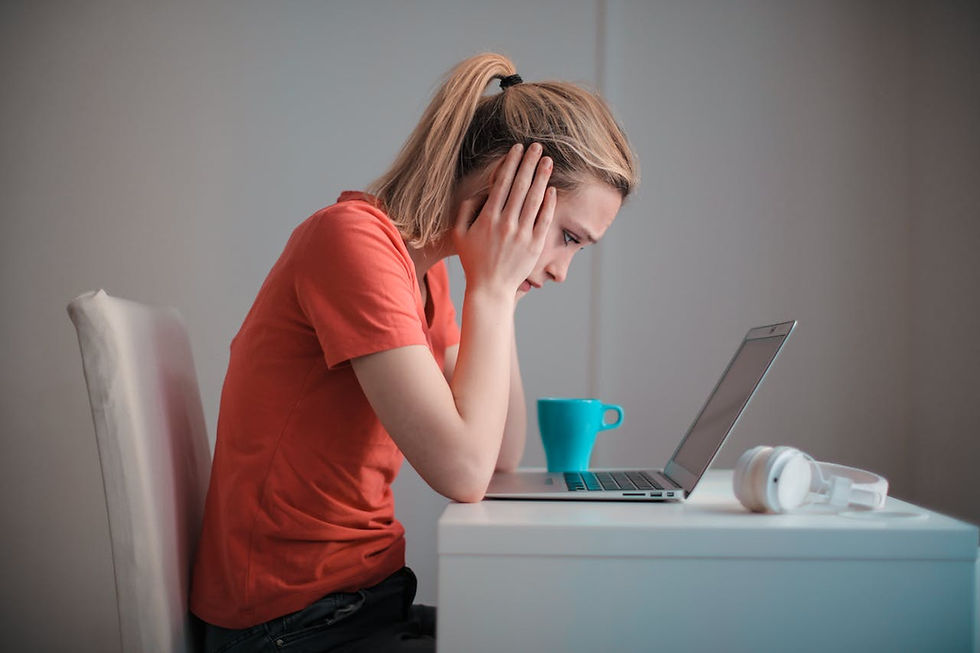How to Deal with Anxious Thoughts
- Grace Dowd
- Nov 10, 2024
- 3 min read
Updated: Aug 23, 2025
You can't seem to escape it. You've tried taking a different route home or even quickening your pace by running instead of walking. No matter what you do, it always seems to find you and follow you home.
Even if you're in the comfort of your own home, it still finds a way to squeeze in and disrupt the comfort that your home typically provides. After a long day at work when you don't have as many distractions, those thoughts start creeping back in.
You could be having the best day ever, and out of nowhere, the sunshine, rainbows, and butterflies are quickly replaced by clouds, rain, and pests. Anxiety is truly a gift that you never asked for or wanted.
This is how to deal with anxious thoughts.
Deep Breaths
Anxiety can disrupt your breathing. It can cause you to feel like you can't catch your breath or increase the rate at which you inhale and exhale. Taking the time to focus on your breathing can help to slow it down to a normal state again. Taking a few deep breaths usually does the trick to help your breathing get back on track as well as calm your mind and body.
Move Your Body

Exercise is not only beneficial for one's physical health, it also can help improve one's overall mental and emotional health. All it takes is finding ways to move your body for at least thirty minutes each day. The best part is that you don't have to fall in love with the gym or running for miles on end. Finding activities like walking outside, stretching, or doing yoga can help reduce your stress levels and naturally improve your mood.
Distractions
When you're busy or distracted during the day, it can be a lot harder for anxiety to find its way in. You may be busy with work, running errands, or tending to family matters. But as soon as those activities are over with for the day, those negative and anxious thoughts can find their way back to you. Try to find distractions to help reduce or limit these types of interactions. You can clean your house, watch television, read, listen to music, or call a friend.
Start Journaling
When you're dealing with anxiety, it can feel like those anxious and unwanted thoughts keep piling inside of you with nowhere to go. Try giving those worries a space to go instead of holding them in. Journaling is a great way to do this. Instead of keeping these thoughts to yourself, you can release them from inside by writing in a notebook or journal. Journaling is a great practice to help when you are experiencing anxiety, but it can also be a useful tool to look back on later. When you're feeling like you're in a better headspace, you can look back on your journal entries to help you determine what may have caused your anxiety as well as any tips or tricks that worked or didn't work to help relieve those signs and symptoms.
Seek Additional Support
People all over the world deal with anxiety from time to time. It's as normal of an emotion as happiness, sadness, and anger. When anxiety starts to take control over everything else in your life, it's an indicator that it may be time to reach out for additional support. A licensed and trained mental health professional will be able to work with you to help you figure out what may be causing you to feel this way. Through a few sessions, they'll be able to help relieve and reduce some of those signs and symptoms and equip you with the tools you need to overcome them on your own. Reach out today to get started with anxiety therapy.



